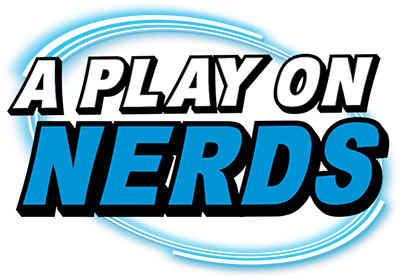The mission is simple. Kill Hive. After narrowly escaping his clutches last week, S.H.I.E.L.D. circles the wagons, and prepares to make a direct strike on the Inhuman Messiah. "Failed Experiments" is an action-driven episode with some surprisingly strong character moments sprinkled in. Daisy’s powers are taken to some new and creative levels, while the show’s second appearance of the Kree rounds out a thrill-filled hour. This episode seemingly answers the question of whether or not a piece of Daisy is trying to break free from Hive's control, thanks in large part to a stellar performance by Chloe Bennet. However, there are still some questions left to be answered as the season makes its way into its final two episodes (technically three since the two-hour season finale is actually two episodes).
When Agents of S.H.I.E.L.D. debuted, the general consensus was that its first season delivered an unfocused and sometimes sluggish narrative, with the Captain America: The Winter Soldier tie-in serving as one of its lone bright spots. Amongst these pointed, yet fair, criticisms was the notion that the series' main character, Skye, was held back by flawed writing and the lacking performance of Chloe Bennet. Since then, AoS has managed to remedy most of these problems. It's shifted away from season one's more episodic format in favor of complex season long arcs, and has increasingly incorporated characters and plot points from Marvel's comic and cinematic universes. However, while the return on these changes have been positive, Skye's development has lagged behind. The writers have tried to dress up the character with fancy powers and a charming sense of sarcasm, but their efforts haven't been able to mask the fact that Bennet had yet to fully come into her own, as an actor, (Agents of S.H.I.E.L.D. is her first major gig).
Admittedly, Bennet handled the Skye-Ward “lovers turned enemies” dynamic well thanks to her chemistry with Brett Dalton. However, Daisy’s season two arc- spent gaining her powers and discovering her family- was just okay, and both plot lines should and could have felt a lot more impactful with a more convincing showing from Bennet. So, when the writers decided to place Bennet in the crosshairs of this season’s “Fallen Agent” arc, I was skeptical that she'd have the precision to pull off such a nuanced twist to her character. And, while her portrayal during the past two episodes has been nothing to write home about, I'm forced to nibble on some crow and admit that Chloe crushed it this week, specifically during her emotionally charged scene with Mack.
The best thing about Daisy’s current trajectory is that it allows the show to explore her character through her relationships with other members of the team. Daisy and Mack is one of the show's more underrated friendships, and has yet to be packaged with a juicy storyline, until now. This episode’s powerful confrontation between Mack (Henry Simmons) and Daisy reminds us that no matter how many fancy special effects or Samuel L. Jackson cameos a show might have, it’s the characters and their relationships that ultimately define it. I was surprised by Henry Simmons’ effectiveness in capturing a simultaneous feeling of fear and concern for his trusted partner, as well as Bennet’s menacing and subtly emotive performance as a brain-washed Daisy. It's possible that playing the bad guy is where Bennet's true talent lies, and I wouldn't mind her arc getting stretched a bit further if it meant more scenes like this.
The FitzSimmons relationship development is much less prominent this week, and the side story that we do get ties in more organically with the episode's overall plot, as well. Fitz and Simmons spend most of their storyline with Lincoln, and the three play off each other well as the team's three resident doctors. Coulson’s on the sidelines for the majority of this one, though he’s such a versatile character that a more behind the scenes role suits him just fine. May appears to have less of an onscreen impact than her field partner, Mack, but she has a quietly important character moment during the episode’s climax that’s worth noting.
The curtain gets pulled back a little further on Hive, as we get a closer look into his origins and motivations. Hive condemns S.H.I.E.L.D. for its never ending quest for war and for engendering the very violence it’s meant to combat. This seems to hint that Hive’s plan is driven by a desire to create some kind of utopian future; however, this hasn’t been built up as much as I’d like, and the show is running out of time to further flesh out Hive. The idea that Hive could actually have a benevolent, “greater good” angle to his ultimate goal is a compelling one. Presented in the right way, it could provide a nice moral quandary for AoS to wrap itself around. Unfortunately, it seems unlikely that the show will put the necessary work in to make this possible. In order to truly make viewers consider the merits of Hive's plan, the writers will need to present a situation in which he lands on the unambiguously right side of the coin. This needs to resonate enough to make us overlook Hive's past actions, and quite simply, we’re running out of runway for this kind of development to take place. And frankly, I'm not sure if this is the direction they're taking Hive anyway, although with the Captain America: Civil War tie-in coming up next week, it's certainly possible given the film's similar central theme.
Garrett Yoshitomi is a contributor for A Play on Nerds. He covers Marvel films and television, and enjoys fantasy baseball, Big Brother live feeds, and Anna Kendrick. You can find his tweets @garrettweets
